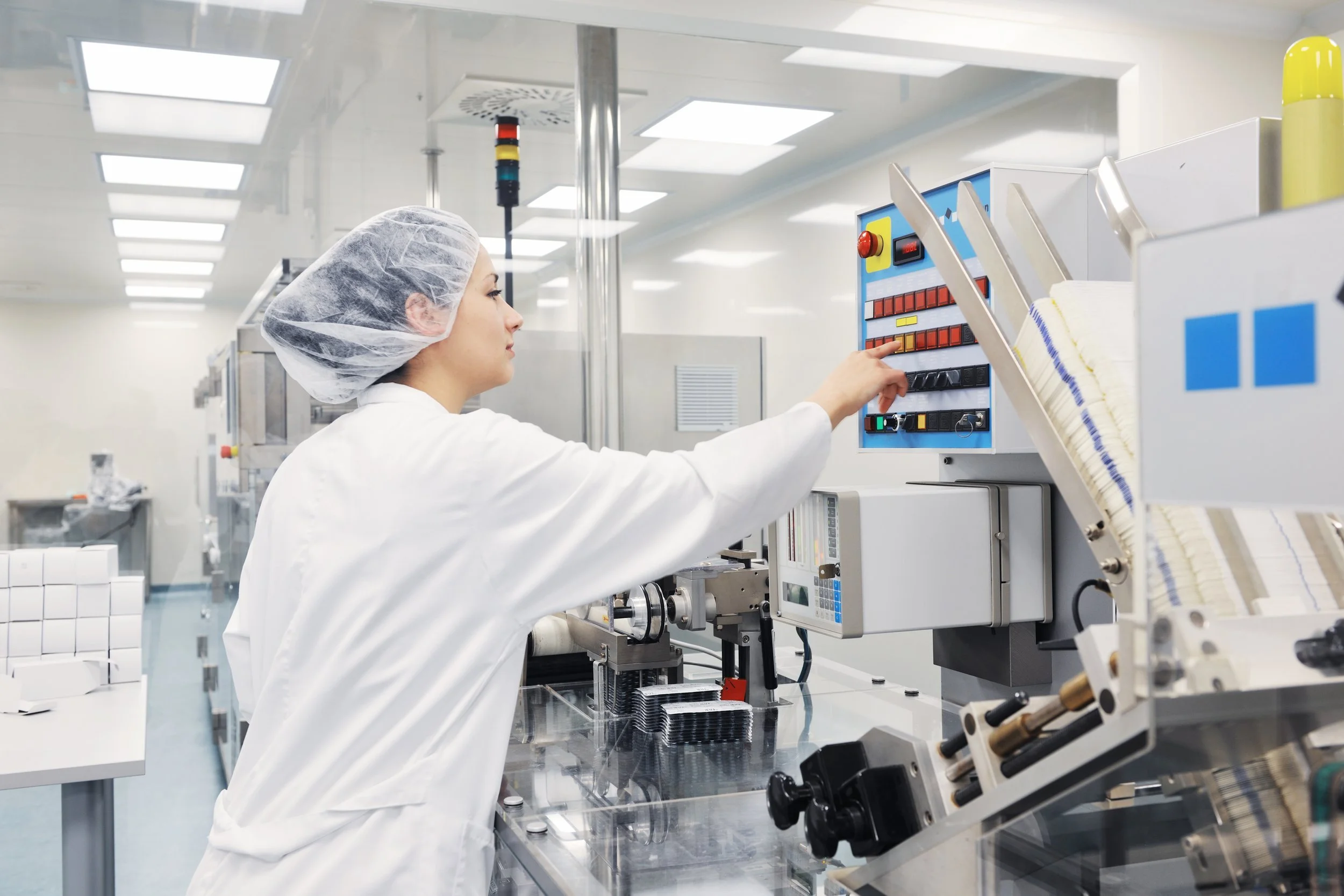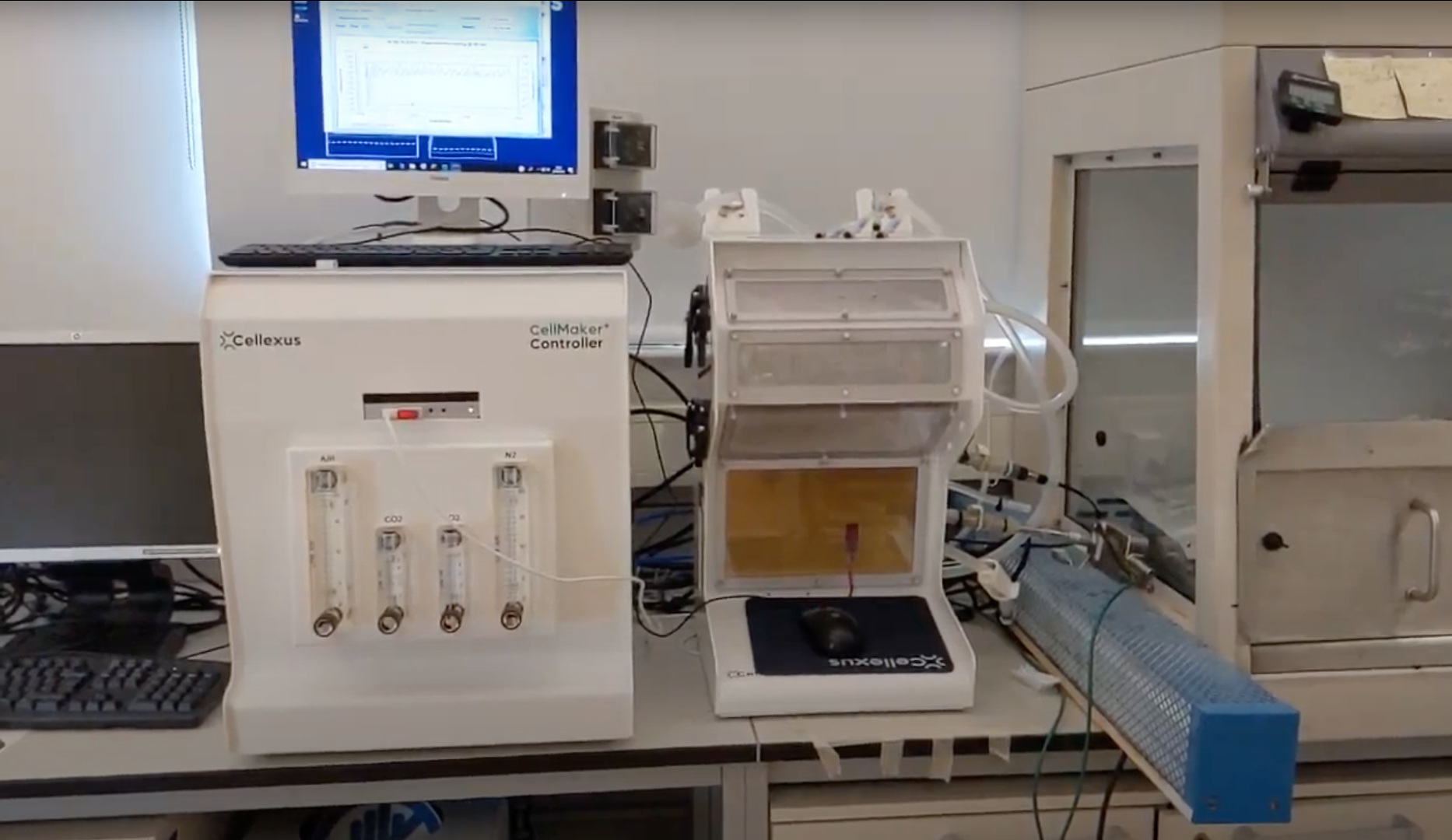Data-driven Optimisation of Protein Production for Industrial Biotechnology
IBioIC funding enabled Ingenza to utilise the bioinformatics experience of Dr Chris Wood, University of Edinburgh to supplement its own knowledge in machine learning, while generating focused DNA libraries that maximised the training value of smaller biological data sets.
Biocatalytic routes to generate cancer chemotherapy pharmacokinetic tools
This project with NuCana and the University of St Andrews aimed to find a way to make cancer treatments safer and more efficient via a new technology to improve the bioanalysis of samples.
Biocatalysis to generate next generation Protides
Innovation funding of £100k from IBioIC enabled NuCana to work with Dr Czekster at St Andrews University on a project to combine organic synthesis and biocatalysis to generate completely novel ProTide compounds with possible activity as anti-viral or anti-cancer agents.
Vaccine production platform for Strep A using E. coli
This project saw RHAPSEDA clone, test, and verify an alternative production approach for a Strep A vaccine production platform. A successful outcome has advanced the company’s plans for commercial production of a genuinely affordable vaccine for all.
Proving the utility of a stably replicating neo-chromosome for engineering pathways in Pichia pastoris
The technology developed in this successful Innovation Fund project could enable Ingenza to identify additional commercial opportunities to expand their current P. pastoris biologics manufacturing platform and attract new commercial end-user partnerships.
Selection and characterisation of anti-peptide synthetic antibodies for comparison with conventional reagents
This Feasibility funded project developed two antibodies using biopanning of University of Edinburgh’s phage display library, allowing TAC to successfully apply for further funding to advance the project and bringing potentially significant benefits for the Scottish economy.
Investigating the use of daffodil extracts to treat heart failure
in this project co-funded with the High Value Biorenewables Network, the team successfully developed a process to extract alkaloids from daffodil biomass which could be used in the treatment of heart failure and are now in a position to apply for investment to take the process forward at scale in Scotland.
Producing broad spectrum antiviral therapeutics from cyanobacteria
In this successful Feasibility Project, the project partners identified antiviral therapeutics that can be extracted from cyanobacteria, and gained leverage for additional funding, training opportunities, and developed new methods for fractionating and purifying polysaccharides.
Improved paclitaxel yields in a biomanufacturing platform
Innovation funding from IBioIC enabled the project partners to test a new strategy to elucidate the natural production mechanisms used by Taxus brevifolia, also known as the Pacific Yew, and engineer them in faster growing plant cells, and propelled Green Bioactives technology readiness level from 3 to 7.
IBioIC funded RSE Enterprise Fellowship enabled entrepreneur to develop the commercial aspects of new business
Dr Stuart Hannah was able to undertake training through the RSE EF which helped him take the business from spinout proposition to fully-fledged incorporated company supported by early stage funding from private VCs
Reducing the environmental impact of pharmaceutical production
In this project funded by our Spin Out support programme, XGenix developed a high throughput assay to rapidly screen enzymes.
Enamel matrix protein formulation for tooth repair
IBioIC awarded over £8.5k through our Spin Out Fund to Bioenamel to produce human proteins in yeast and test them on surfaces that mimicked damaged teeth.
Engineering polyketide production
BioIC awarded funding to researchers at the University of Edinburgh to help Ingenza engineer a novel way to produce sustainable surfactants utilising polyketide-producing enzyme complexes that would be adaptable to industry’s needs.
Enhancing the purity of speciality seaweed products
Marine Biopolymers (MBL) is a Scottish SME whose focus is on extracting high value components from brown seaweeds for use in a range of applications such as food and pharmaceuticals, but also in different industrial application areas, where the use of natural polymers is growing fast.
New Strategies for Downstream Processing of Recombinant Proteins
A feasibility study which offers the potential to improve the production of therapeutic proteins through the development of a purification platform which includes an affinity chromatography step that has been specifically designed for use with a novel set of protein tags.
Extending the analytical capability of affordable Microbioreactors
ŌGI Bio Ltd wanted to explore the feasibility of utilising the University of Edinburgh’s state of the art in-line dilution technology to extend the valid range of OD measurements for their microbioreactors.
Using a Single Use Airlift Bioreactor to produce recombinant monoclonal antibodies (mABs) in mammalian cells.
This Feasibility project sought to obtain data on whether and how the CellMaker aids the growth of mammalian cells for use in the production of medicines, therapeutics and research reagents.
Antimicrobial nanocellulosic matrices and coatings
Waste root vegetables could help stop microbes growing on medical implants.
Using a mini-chromosome for synthetic biology in Pichia pastoris
Funding of just under £50k from IBioIC enabled Ingenza to gain invaluable expertise and enhanced their ability to access new markets and end users thanks to the technology developed as a result of this project.
Media Development & Scale-Up of Probiotic Culture Growth to 22 L
Scientists at the University of Bristol discovered a probiotic strain of Streptococcus thermophilus which had been found to have a variety of health benefits. Unfortunately, the media on which it was grown rendered it unsuitable for human consumption. Our Technical Team were approached to develop a new media which would provide similar cell growth and facilitate a commercially viable product.




















